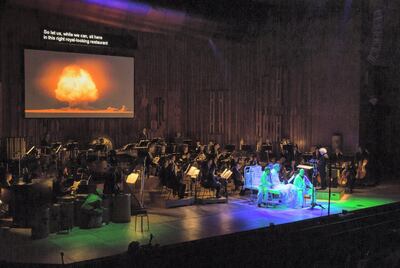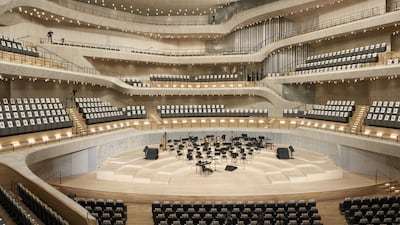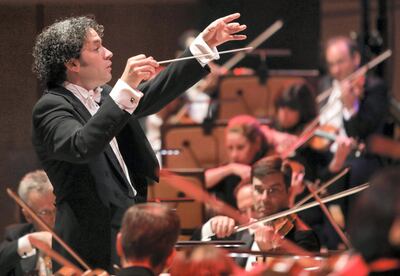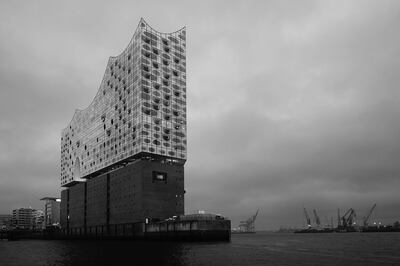"If we want things to stay the same, everything will have to change." Lampedusa's paradox could serve as a motto for the world of classical music at any point in the last three centuries. It's the oldest joke in the business – that each new generation of this impossible, extravagant, uniquely life-affirming art will somehow be its last. (Industry expert Andy Doe has dated the earliest prediction of the "death of classical music" to 1324). Somehow it never is.
This year is no different. On January 1, Gustavo Dudamel, 35, became the youngest person ever to conduct the Vienna Philharmonic Orchestra's annual New Year's Day concert. A decade since he first astonished the world as the darling of Venezuela's El Sistema music education programme, Dudamel is still a life force, even though increased international scrutiny has tarnished the El Sistema fairy tale. There were always going to be those who carped, but in the event, he carried it off with flair and an ear for tradition that put some Austrian maestros to shame.
Ten days later, a laser show marked the opening of Europe's newest major concert hall – the Elbphilharmonie in Hamburg. It was way over budget, and the tiny replica version in Hamburg's Miniatur Wunderland was entertaining the crowds years before the real thing was completed. But Angela Merkel and a glittering crowd attended the opening gala: proof that in the historic heartland of Germany, classical music is still a vital force.
Berlin followed suit in March with the Frank Gehry-designed Pierre-Boulez-Saal, a small but stunning new hall for the proudly multicultural Barenboim-Said Academy.
These were confident gestures, and there were times this year when that felt badly needed. Sexual scandals have been exposed at some of North America's most glamorous musical institutions, and there's been a sense of an older generation burning out or fumbling the ball. John Adams' new opera Girls of the Golden West, which premiered in San Francisco in November, was met with lukewarm reviews.
"A portrait of Gold Rush California inhabited by pasteboard figures and disembodied political mouthpieces," wrote the San Francisco Chronicle. Philip Glass's 11th Symphony premiered in New York in January without generating anything that resembled a buzz.
There were some high-profile losses, too. The tenor Nicolai Gedda, the conductor Georges Prêtre and the sublime harpsichordist Zuzana Ružicková all died, full of years and honour. The beloved Russian baritone Dmitri Hvorostovsky's death of brain cancer at the age of 55 prompted an outpouring of grief throughout the world of opera.
Meanwhile, with the American soprano Renée Fleming announcing that her May performances as the Marschallin in Der Rosenkavalier at the New York Metropolitan Opera would be her last in that role, a living legend is clearly starting to wind down her career. The superstar tenor Jonas Kaufmann cancelled a series of appearances in the spring before storming back in June as the hero of Verdi's Otello at the Royal Opera House in London. No one is infallible, though, and we're probably still some way from Peak Jonas.
But look beneath the star names and powerful institutions, and the real mood of 2017 in classical music has been one of generational renewal. Standout moments at the BBC Proms in London included the Proms debut of Chineke!, an orchestra created specifically to serve as a beacon to non-white classical musicians; and an appearance by the City of Birmingham Symphony Orchestra under its new music director Mirga Gražinyte-Tyla, who's been giving electrifying performances in the United Kingdom and Los Angeles with cheerful disregard for the industry's dwindling band of sexist dinosaurs.
Sir Simon Rattle’s arrival as the new music director of the London Symphony Orchestra was the biggest event in UK classical music in the second half of the year, and the hype might have led you to think this was merely another big-name maestro joining a wealthy orchestra. In fact, Rattle began his tenure with a challenging contemporary programme, and he’s made it clear that education and community work will be at the heart of his mission in London. He’s got a knack of getting politicians to do the right thing by the arts.

And who'd have predicted that in 2017 we'd enjoy a full-on, 18th-century-style feud between harpsichordists? The sparky Frenchman Jean Rondeau – recognisable by his sky-scraping quiff – came under attack from the Iranian-American maverick Mahan Esfahani: an artist whose open-minded ethos (he was mentored by Ružicková) is redefining what the harpsichord means in the 21st century. "Having funky hair or playing a little bit of jazz doesn't make you iconoclastic if your harpsichord playing is perfectly orthodox," he joked.
Meanwhile, formerly marginal repertoire increasingly seems to be where the action is. Discs of music by veteran Polish modernist Krzysztof Penderecki and American sonic pop-artist Michael Daugherty both scooped Grammys, while the Gramophone Awards were dominated by a new wave of period instrument performers. Giovanni Antonini’s explosive Italian ensemble Il Giardino Armonico won in two separate categories, including the Orchestral award – once reserved for the likes of the Vienna Philharmonic. There’s a growing acceptance, too, that classical music is no longer Eurocentric by default: Masaaki Suzuki’s Bach Collegium Japan collected a Gramophone Award for its Mozart C minor Mass.
But if you only buy one classical recording from this year, make it John Nelson's new version of Berlioz's epic Les Troyens, starring Joyce DiDonato – surely poised to take Fleming's crown as America's operatic sweetheart. It's the sort of hugely ambitious disc the sceptics will tell you they don't make any more: grand opera at its very grandest, headlined by an artist at the top of her game. At the heart of it all (in case we forget) is Berlioz's music – simultaneously epic and intimate, shaping our emotions, telling its story and making us just that bit more aware of what it means to be human. Exactly like classical music has always done.
________________________
Read more:
Abu Dhabi Classics: Beethoven’s five piano concertos are always emotional
Habibi Funk: rare tunes from Arabia
The poetic licence of Arab indie scene leader Tania Saleh
________________________




